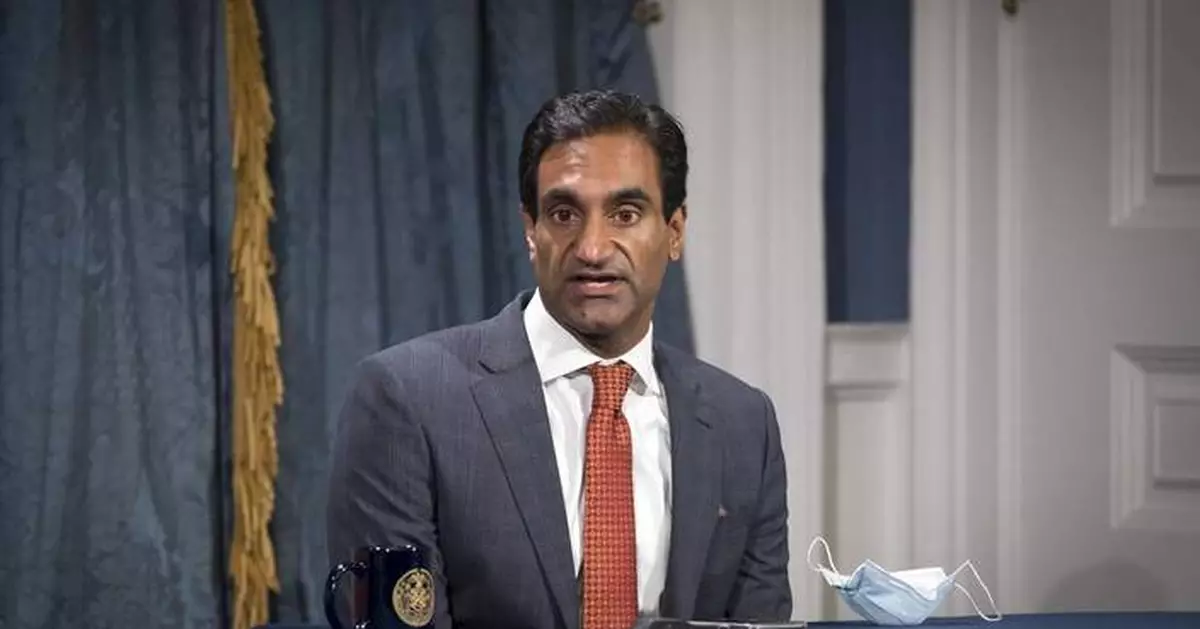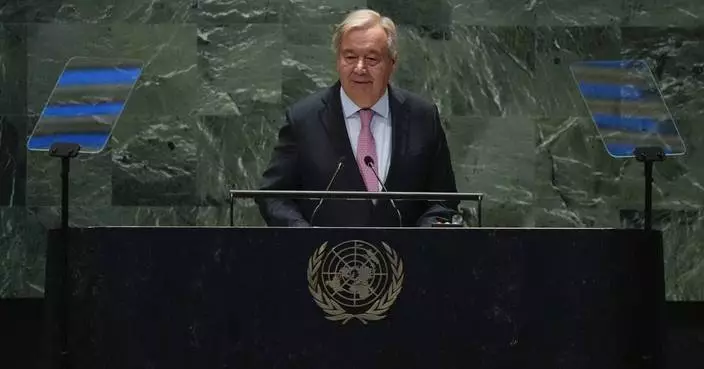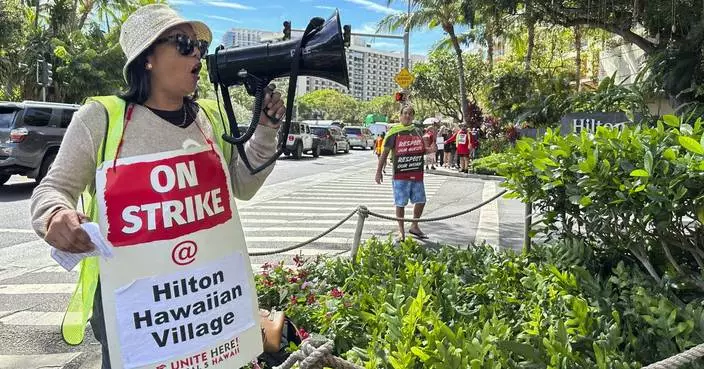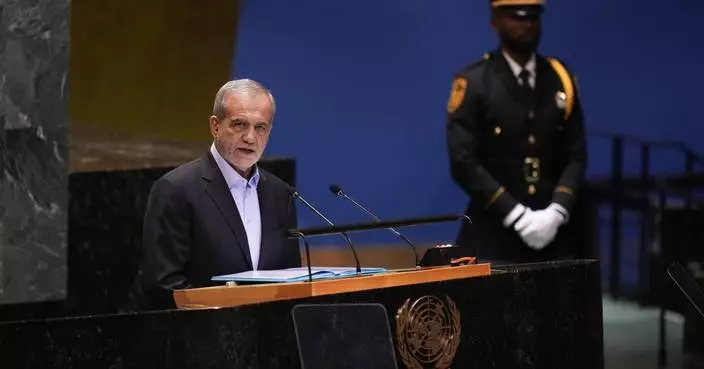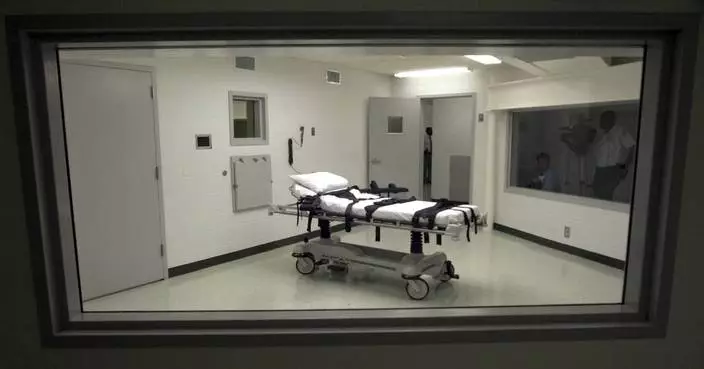NEW YORK (AP) — A former New York City official who helped coordinate the city’s response to the pandemic was fired from his private-sector job after a recording showed him talking about attending a sex party and other private gatherings when the city was urging people to practice social distancing.
Dr. Jay Varma was terminated from his position as executive vice president and chief medical officer at SIGA Technologies, the New York-based pharmaceutical company disclosed in a filing Monday with the U.S. Securities and Exchange Commission.
Varma served as a senior public health adviser to then-Mayor Bill de Blasio from April 2020 to May 2021. He regularly appeared with the Democratic mayor at press briefings discussing the city’s COVID-19 response and helped develop programs and strategies to combat the virus, including encouraging people to wear masks in public, get tested regularly and get vaccinated, once vaccines were available.
A hidden-camera video posted last week by podcaster Steven Crowder shows Varma speaking casually to a woman about attending gatherings even as he served as a face of the city’s pandemic response.
“I did all this deviant, sexual stuff while I was on TV and people were like, ‘Aren’t you afraid? Aren’t you embarrassed?’” he said at one point in the edited recording. “And I was like, no, I really like being my authentic self.”
Varma also acknowledged how disastrous his actions would have been to the city’s efforts had they been exposed at the time.
“It would have been a big deal,” he said at another point in the video. “It would have been a real embarrassment.”
Former British Prime Minister Boris Johnson resigned in 2023 after a yearslong government inquiry revealed he and members of his administration attended parties in government offices in violation of COVID-19 lockdown rules at the time.
Democratic California Gov. Gavin Newsom faced criticism for flouting his own pandemic rules when he attended a friend’s birthday party at the swanky French Laundry restaurant in Napa Valley in November 2020.
Varma declined Tuesday to comment on his firing, but acknowledged the authenticity of the video in a statement provided by a spokesperson.
“I take responsibility for not using the best judgment at the time,” he wrote, adding that the recordings were from private conversations that had been “secretly recorded, spliced, diced, and taken out of context.”
Varma didn’t elaborate on the events he referenced in the video, but acknowledged attending at least three private gatherings during his City Hall tenure.
Varma, in the video, said one party took place in a hotel room in August 2020 with about 8 to 10 people, including his wife, who were naked and taking the recreational drug molly, or ecstasy.
By then, New York’s governor had begun easing restrictions, with indoor gatherings of up to 10 people permitted months earlier. Varma said he still took precautions to make sure he wasn’t caught.
“I had to be kind of sneaky about it,” he said. “I was running the entire COVID response for the city.”
He also attended a drug-fueled dance party with roughly 200 people in a space under a Wall Street bank in May or June of 2021, according to the recording. In mid-May, New York state had raised the limit on indoor gatherings to 250 people and by mid-June, it had lifted most pandemic restrictions.
Varma, who left his City Hall position around that time but continued to serve as a part-time consultant, according to his LinkedIn bio, recalled being worried about being spotted at the party at the time.
“This was not COVID-friendly,” he said in the video, which appears to have been stitched together from recordings made secretly during a number of different social encounters with an unidentified woman, who is off camera.
A spokesperson for SIGA Technologies didn’t respond to emails seeking comment.
Mayor Eric Adams, a Democrat, declined to wade into the controversy Tuesday during his regular City Hall briefing with reporters. Some local conservatives called for a government inquiry.
“The hypocrisy is outrageous,” said City Council Member Robert Holden, a Queens Democrat, who applauded Varma's firing. “Millions were impacted by their heavy-handed policies, and the public deserves accountability.”
Varma in his statement defended his efforts to respond to the pandemic and denounced the video as part of “dangerous extremist efforts to undermine the public’s confidence” in vaccines.
“Facing the greatest public health crisis in a century, our top priority was to save lives, and every decision made was based on the best available science to keep New Yorkers safe,” he wrote.
Follow Philip Marcelo at twitter.com/philmarcelo.
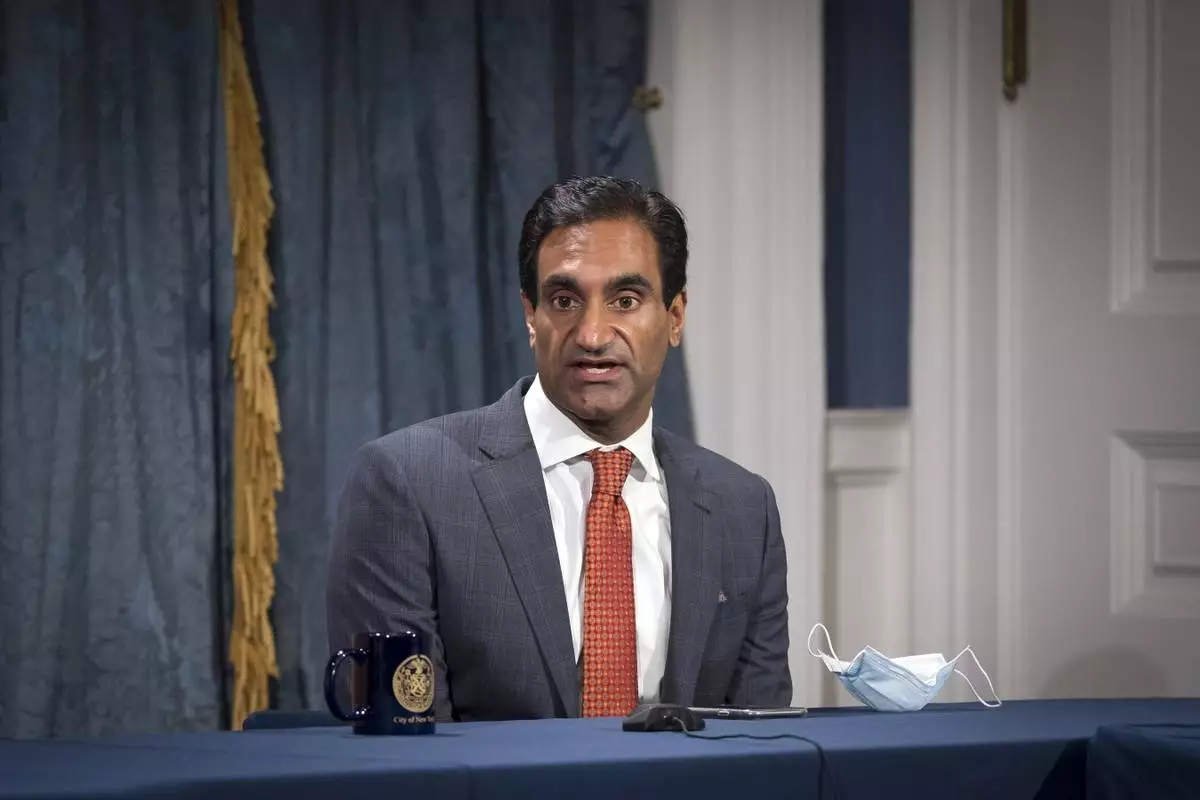
This photo provided by the New York City Mayoral Photography Office shows Jay Varma, a senior advisor to Mayor Bill de Blasio, during a media availability in New York, Oct. 4, 2020. (Ed Reed/Mayoral Photography Office via AP)
BONNE TERRE, Mo. (AP) — A Missouri man convicted of breaking into a woman’s home and repeatedly stabbing her was executed Tuesday over the objections of the victim’s family and the prosecutor, who wanted the death sentence commuted to life in prison.
Marcellus Williams, 55, was convicted in the 1998 killing of Lisha Gayle, who was stabbed during the burglary of her suburban St. Louis home.
Williams was put to death despite questions his attorneys raised over jury selection at his trial and the handling of evidence in the case. His clemency petition focused heavily on how Gayle’s relatives wanted Williams’ sentence commuted to life without the possibility of parole.
“The family defines closure as Marcellus being allowed to live,” the petition stated. “Marcellus’ execution is not necessary.”
As Williams lay awaiting execution, he appeared to converse with a spiritual adviser seated next to him. Williams wiggled his feet underneath a white sheet that was pulled up to his neck and moved his head slightly while his spiritual advisor continued to talk. Then Williams' chest heaved about a half dozen times, and he showed no further movement.
Williams' son and two attorneys watched from another room. No one was present on behalf of the victim's family.
The Department of Corrections released a brief statement that Williams had written ahead of time, saying: “All Praise Be to Allah In Every Situation!!!”
Republican Missouri Gov. Mike Parson said he hoped the execution brings finality to a case that “languished for decades, revictimizing Ms. Gayle’s family over and over again.”
“No juror nor judge has ever found Williams’ innocence claim to be credible,” Parson said in a statement.
The NAACP had been among those urging Parson to cancel the execution.
“Tonight, Missouri lynched another innocent Black man,” NAACP President Derrick Johnson said in a statement.
It was the third time Williams faced execution. He got reprieves in 2015 and 2017, but his last-ditch efforts this time were futile. Parson and the state Supreme Court rejected his appeals in quick succession Monday, and the U.S. Supreme Court declined to intervene hours before he was put to death.
Last month, Gayle’s relatives gave their blessings to an agreement between the St. Louis County prosecuting attorney’s office and Williams’ attorneys to commute the sentence to life in prison. But acting on an appeal from Missouri Attorney General Andrew Bailey’s office, the state Supreme Court nullified the agreement.
Williams was among death row inmates in five states who were scheduled to be put to death in the span of a week — an unusually high number that defies a yearslong decline in the use and support of the death penalty in the U.S. The first was carried out Friday in South Carolina. Texas was also slated to execute a prisoner on Tuesday evening.
Gayle, 42, was a social worker and former St. Louis Post-Dispatch reporter. Prosecutors at Williams’ trial said he broke into her home on Aug. 11, 1998, heard the shower running and found a large butcher knife. Gayle was stabbed 43 times when she came downstairs. Her purse and her husband’s laptop were stolen.
Authorities said Williams stole a jacket to conceal blood on his shirt. His girlfriend asked him why he would wear a jacket on a hot day. She said she later saw the purse and laptop in his car and that Williams sold the computer a day or two later.
Prosecutors also cited testimony from Henry Cole, who shared a cell with Williams in 1999 while Williams was jailed on unrelated charges. Cole told prosecutors that Williams confessed to the killing and provided details about it.
Williams’ attorneys responded that the girlfriend and Cole were both convicted of felonies and wanted a $10,000 reward. They said that fingerprints, a bloody shoeprint, hair and other evidence at the crime scene didn’t match Williams’.
A crime scene investigator had testified the killer wore gloves.
Questions about DNA evidence also led St. Louis Prosecuting Attorney Wesley Bell to request a hearing challenging Williams’ guilt. But days before the Aug. 21 hearing, new testing showed that DNA on the knife belonged to members of the prosecutor’s office who handled it without gloves after the original crime lab tests.
Without DNA evidence pointing to any alternative suspect, Midwest Innocence Project attorneys reached a compromise with the prosecutor’s office: Williams would enter a new, no-contest plea to first-degree murder in exchange for a new sentence of life in prison without parole. A no-contest plea isn’t an admission of guilt but is treated as such for the purpose of sentencing.
Judge Bruce Hilton signed off, as did Gayle’s family. But Bailey appealed, and the state Supreme Court blocked the agreement and ordered Hilton to proceed with an evidentiary hearing, which took place last month.
Hilton ruled on Sept. 12 that the first-degree murder conviction and death sentence would stand, noting that Williams’ arguments all had been previously rejected. That decision was upheld Monday by the state Supreme Court.
Attorneys for Williams, who was Black, also challenged the fairness of his trial, particularly the fact that only one of the 12 jurors was Black. Tricia Bushnell of the Midwest Innocence Project said the prosecutor in the case, Keith Larner, removed six of seven Black prospective jurors.
Larner testified at the August hearing that he struck one potential Black juror partly because he looked too much like Williams — a statement that Williams’ attorneys asserted showed improper racial bias.
Larner contended that the jury selection process was fair.
Williams was the third Missouri inmate put to death this year and the 100th since the state resumed use of the death penalty in 1989.
AP writer Mark Sherman contributed from Washington. Salter reported from O’Fallon, Missouri.
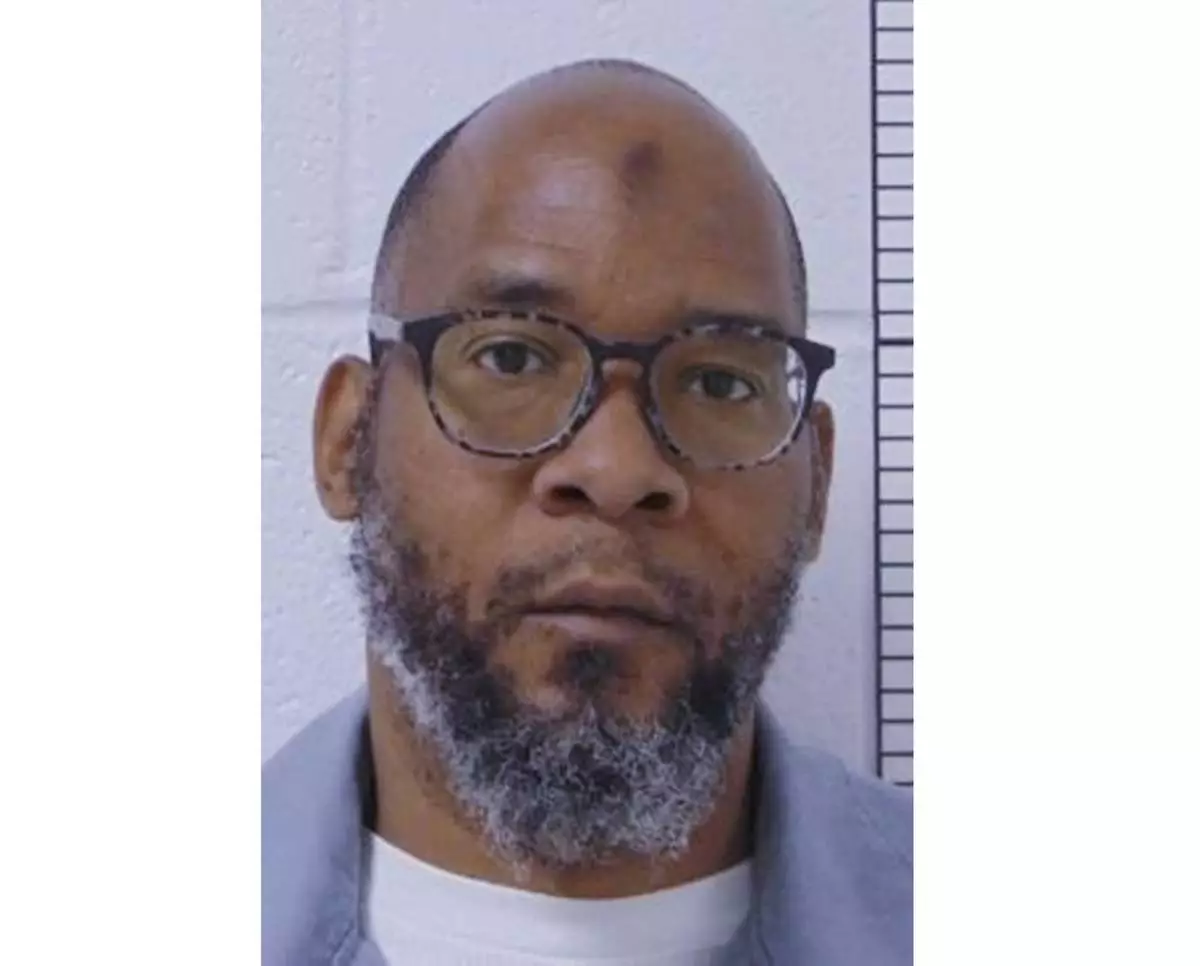
FILE - This photo provided by the Missouri Department of Corrections shows Marcellus Williams. (Missouri Department of Corrections via AP, file)
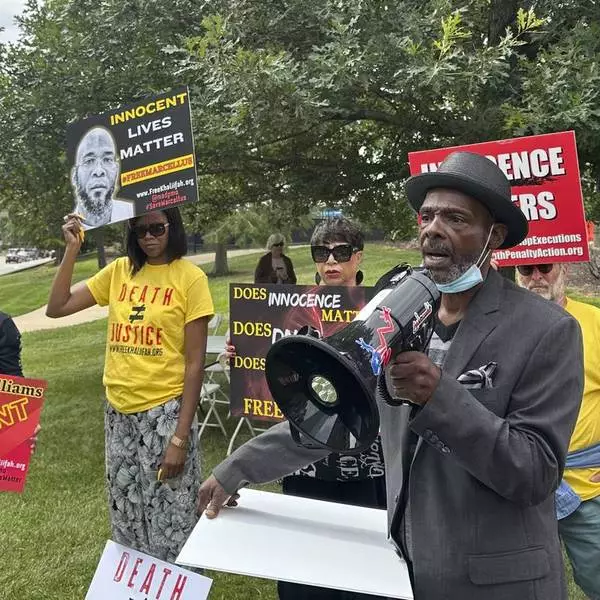
Lawyers seek Supreme Court intervention hours before a Missouri inmate's planned execution
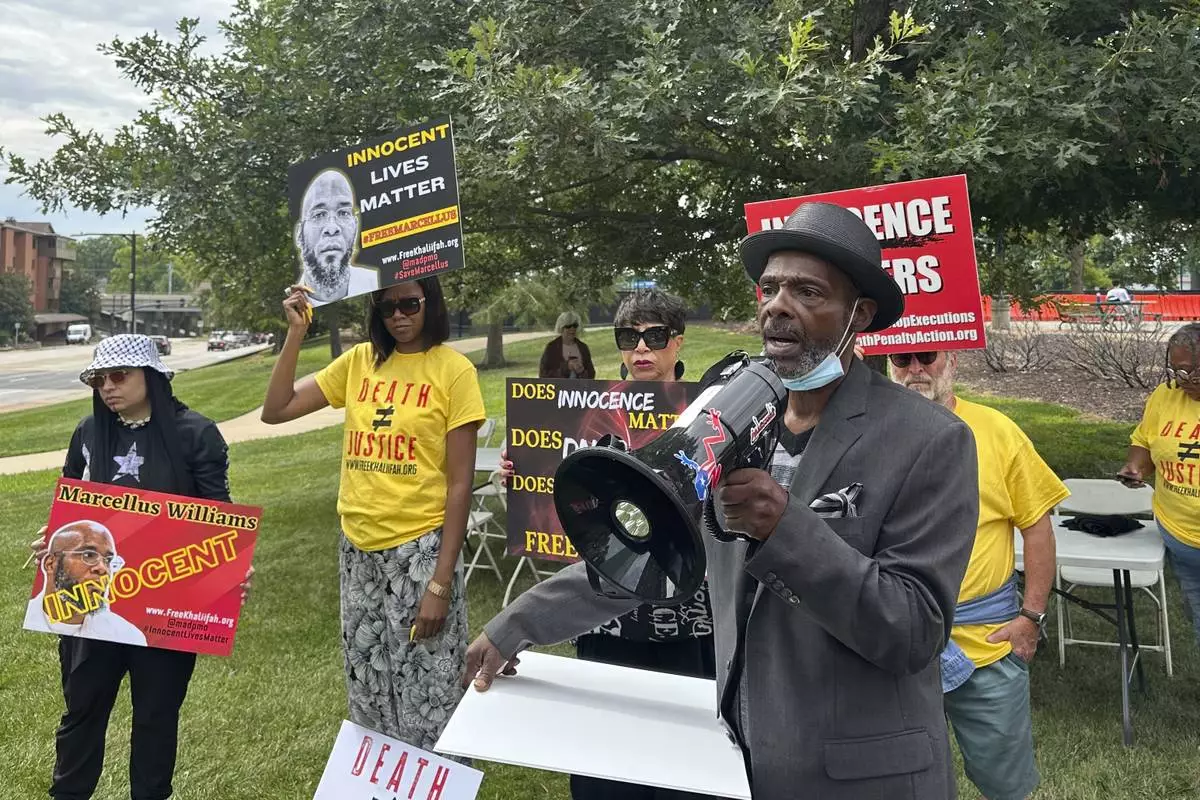
FILE - Joseph Amrine, who was exonerated two decades ago after spending years on death row, speaks at a rally to support Missouri death row inmates Marcellus Williams on Aug. 21, 2024, in Clayton, Mo. (AP Photo/Jim Salter, file)
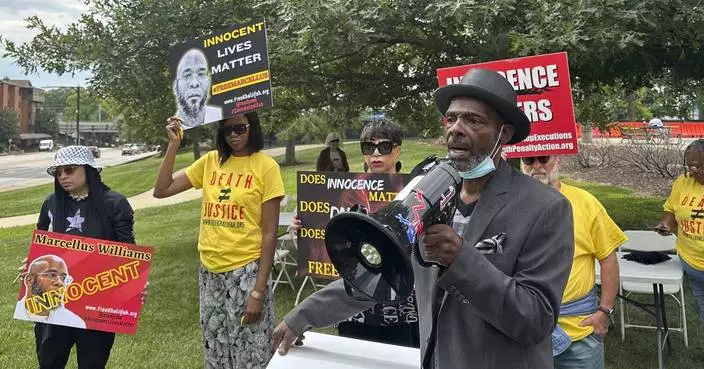
Lawyers seek Supreme Court intervention hours before a Missouri inmate's planned execution



